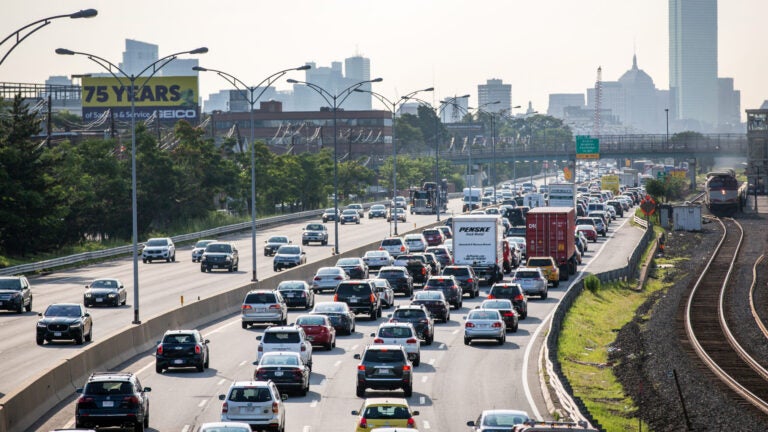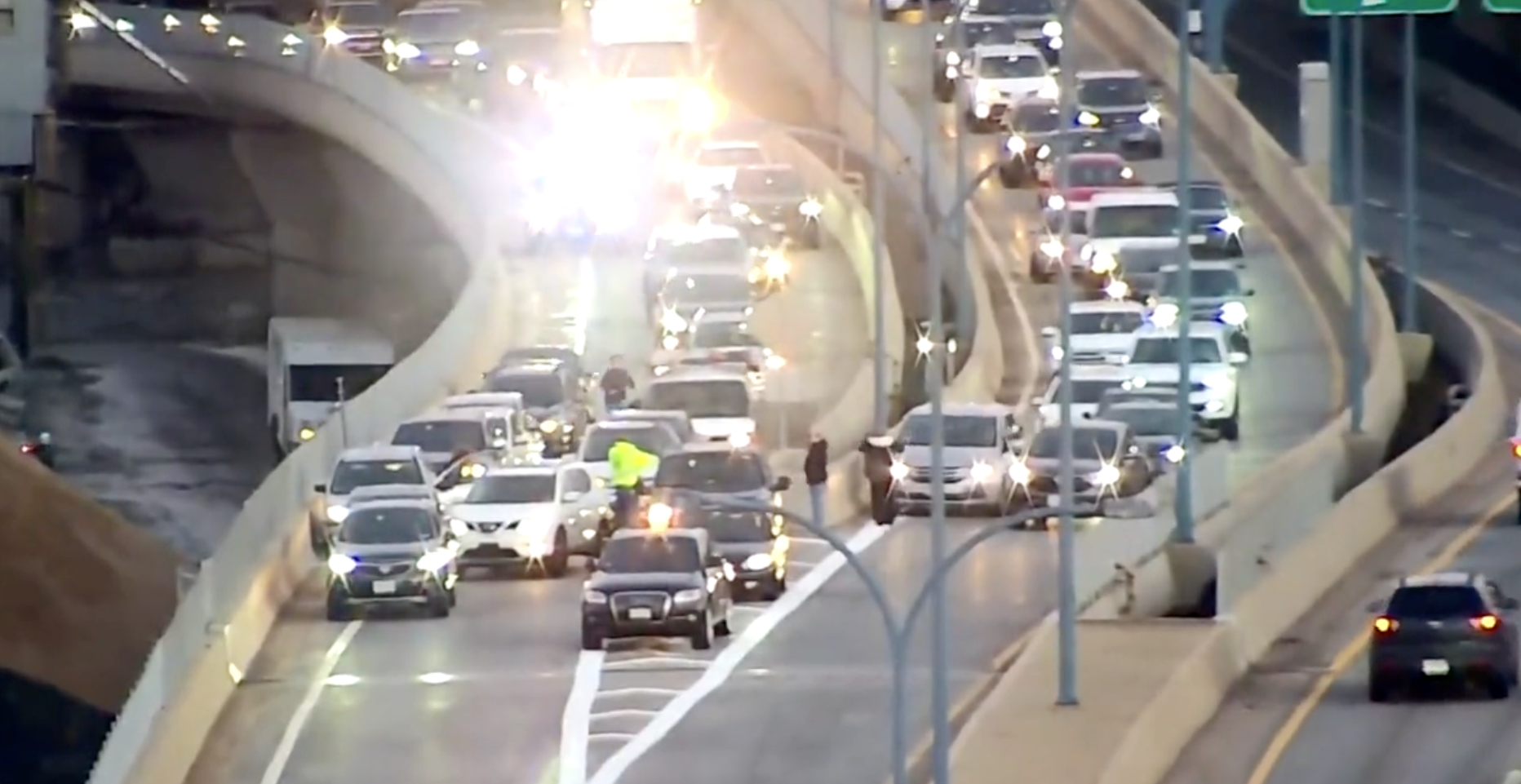The Speed of a Car on a Boston Tollway During Rush Hour Traffic Discrete or Continuous
Boston has the worst rush-hour traffic in the U.S., report says
The Bay State city beat L.A. — once again.

If you think the snarl of bumper-to-bumper Boston traffic on your daily commute is the worst in the country, you're right, according to one recent study.
Boston earned the title of most congested city in the United States during peak commuting times in the latest Global Traffic Scorecard from transportation analytics-firm INRIX released this week.
The annual report, which pulls data from 300 million sources and over 5 million miles of road around the world, put the Bay State city above Washington, D.C., Chicago, New York City, and even infamously-gridlocked Los Angeles.
So how did that happen?
Boston ranked No. 7 in last year's report, in which Los Angeles took the No. 1 position. Those findings were based upon the time an average driver spent in traffic over the course of an entire day.
But this year, INRIX used a new methodology that focused on how much longer drivers spent in traffic during peak times than they would have spent driving in normal conditions, according to the report.
Through this format, Boston catapulted to the front of the line. Drivers here lost 164 hours in rush-hour congestion on average last year that they otherwise would not have if they drove at other times of the day. Washington, D.C., ranked No. 2, clocked in with 155 hours, followed by Chicago with 138.
"Los Angeles experiences high levels of congestion throughout the day, but its peak severity is less than Boston and Washington D.C. In other terms, Boston and Washington D.C. experience lower lows compared to Los Angeles' consistently congested roadways, although all three are heavily congested," the report says. "Congestion severity correlates with city age and density because cities tend to develop around the popular transportation modes of the period."
All that time drivers spent with their foot on the brake cost each an average of $2,291 last year — with a total of $4.1 billion for all of Boston — in lost productivity time, according to the study. Nationally, congestion cost Americans $87 billion in 2018, with an average of $1,348 per driver, the report says.
Other metrics in the report include the inner city last-mile travel time — or "the time it takes to travel one mile into the central business district during peak hours," the study says — where Boston came in at 6 minutes. The city's "inner city last-mile speed" was recorded at an 11 mph average.
The report also compiled a list of the country's "Top 10 Worst Corridors." I-93 made an appearance at No. 7, specifically the stretch between the Massachusetts Avenue Connector and Braintree, where motorists saw a daily delay of 13 minutes, according to the report.
Stacked up against the most congested cities around the globe, Boston was ranked at No. 8, behind Moscow at No. 1, followed by Istanbul, and Bogota, Colombia, at No. 3.
While "Beat LA" was a rallying cry for Boston's two championship-winning teams in the past year, the latest traffic study gives the phrase a new meaning, according to Chris Dempsey, director of Transportation for Massachusetts, a coalition of organizations advocating for transportation policies.
"Being recognized as the worst region in the United States for traffic is a tough pill to swallow," Dempsey said in a statement. "While our situation is getting worse, other cities that were previously ranked ahead of Boston are taking steps to remedy congestion. Seattle is a great model for what's possible — thanks to smart policies, the number of jobs downtown has grown at the same time the number of drivers has decreased. We need to look at this headline as a wakeup call or else run the risk of becoming back-to-back congestion champs."
The INRIX report casts Boston's particularly dense streets in a bad light, said state Department of Transportation (MassDOT) Secretary Stephanie Pollack.
"The study basically compares how fast speeds are to the speed limit during the height of rush hour," she told Boston.com Tuesday. "I don't think anybody expects to go the speed limit during the height of rush hour. I'm not sure that's the objective people have."
Although commuters in the city experience heavy traffic, they tend to travel shorter distances than in some of the country's more spacious cities where motorists travel much farther to get to their destinations, Pollack said.
And state officials know congestion is a problem in the Boston area as much as any commuter, with or without the study, according to Pollack.
Gov. Charlie Baker ordered MassDOT last year to carry out a study highlighting the factors contributing to heavy traffic gridlock, what roads are particularly bad, and what exactly could be done about it. That report is due this spring, Pollack said.
The agency's review will include a dive into how congestion snarls the speed of traffic, but also its effect on travel times, which often fluctuate for everyday commuters, according to Pollack.
"People really care about reliability," she said.
Ensuring that crash scenes are cleared quickly and being mindful of where work zones are deployed on highways are aspects officials could focus on to help alleviate issues, Pollack said.
"It doesn't really matter if we're the worst (congestion) in the country … we need to be on it," she said.
Source: https://www.boston.com/cars/commute/2019/02/12/boston-worst-rush-hour-traffic/

0 Response to "The Speed of a Car on a Boston Tollway During Rush Hour Traffic Discrete or Continuous"
Post a Comment